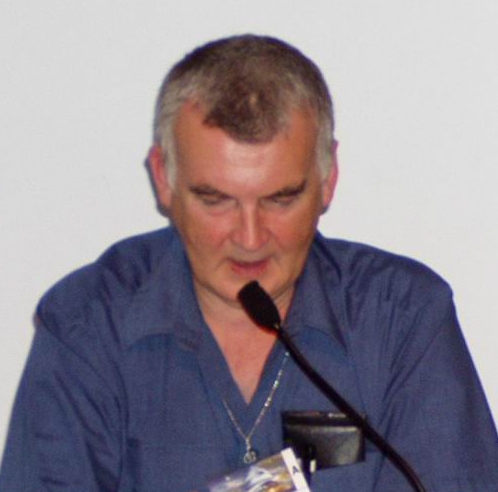Źródło: Learning the World (2005), Chapter 7 “Television” (p. 110)
Ken MacLeod: Cytaty po angielsku
weblog post http://kenmacleod.blogspot.com/2004_09_01_kenmacleod_archive.html, 3 September 2004
Other sources
Źródło: Learning the World (2005), Chapter 16 “The Anomalies Room” (p. 264)
Źródło: Learning the World (2005), Chapter 15 “Hollow Spaces of the Forward Cone” (p. 248)
Źródło: Learning the World (2005), Chapter 9 “Red Sun Circle” (pp. 136-137)
Źródło: Learning the World (2005), Chapter 14 “The Extraordinary and Remarkable Ship” (p. 239)
Źródło: Learning the World (2005), Chapter 3 “Spectral Lines” (p. 40)
Źródło: Learning the World (2005), Chapter 17 “Fire in the Sky” (p. 284)
Źródło: Learning the World (2005), Chapter 9 “Red Sun Circle” (p. 148)
Źródło: Learning the World (2005), Chapter 9 “Red Sun Circle” (pp. 134-135)
Źródło: Learning the World (2005), Chapter 14 “The Extraordinary and Remarkable Ship” (p. 237)
Źródło: Learning the World (2005), Chapter 19 “A Full and Frank Exchange of Views” (p. 326)
“I take small interest in politics,” he said. “The subject repels me.”
Źródło: Learning the World (2005), Chapter 14 “The Extraordinary and Remarkable Ship” (p. 232)
Źródło: Learning the World (2005), Chapter 15 “Hollow Spaces of the Forward Cone” (p. 249)
“Of all the sciences, astronomy was the one the superstitious liked least.”
Źródło: Learning the World (2005), Chapter 4 “A Moving Point of Light” (p. 51)
“Darvin listened to the hymn with a mixture of enjoyment of its beauty and disdain of its content.”
Źródło: Learning the World (2005), Chapter 16 “The Anomalies Room” (p. 273)
“It saddened him that military technology was so much more advanced than he’d ever imagined.”
Źródło: Learning the World (2005), Chapter 8 “Security Concerns” (p. 122)
Źródło: Learning the World (2005), Chapter 21 “But The Sky, My Lady! The Sky!” (p. 358)
Źródło: Learning the World (2005), Chapter 4 “A Moving Point of Light” (p. 51)
USENET posting to rec.sf.arts.fandom http://groups.google.com/group/rec.arts.sf.fandom/browse_frm/thread/303b0da0ab25aee/b12adceacd343279 28 September 2000, in the discussion of Robert A. Heinlein's quote "The cowards never started and the weaklings died on the way." (Expanded Universe, How to be a Survivor in the Atomic Age)
Other sources
“We’re in danger of losing the ship generation.”
“I’m aware of the problems,” she said. “‘You can’t tell the boys from the girls, they have no respect for their elders, their user interfaces are garish and unwieldy, everybody is writing a book, and their music is just noise.’ Found scratched on a potsherd in Sumer.”
Źródło: Learning the World (2005), Chapter 15 “Hollow Spaces of the Forward Cone” (p. 248)
“Anyway…I find what you write interesting.”
“That’s what people usually say when they disagree with it.”
Źródło: Learning the World (2005), Chapter 7 “Television” (p. 110)
